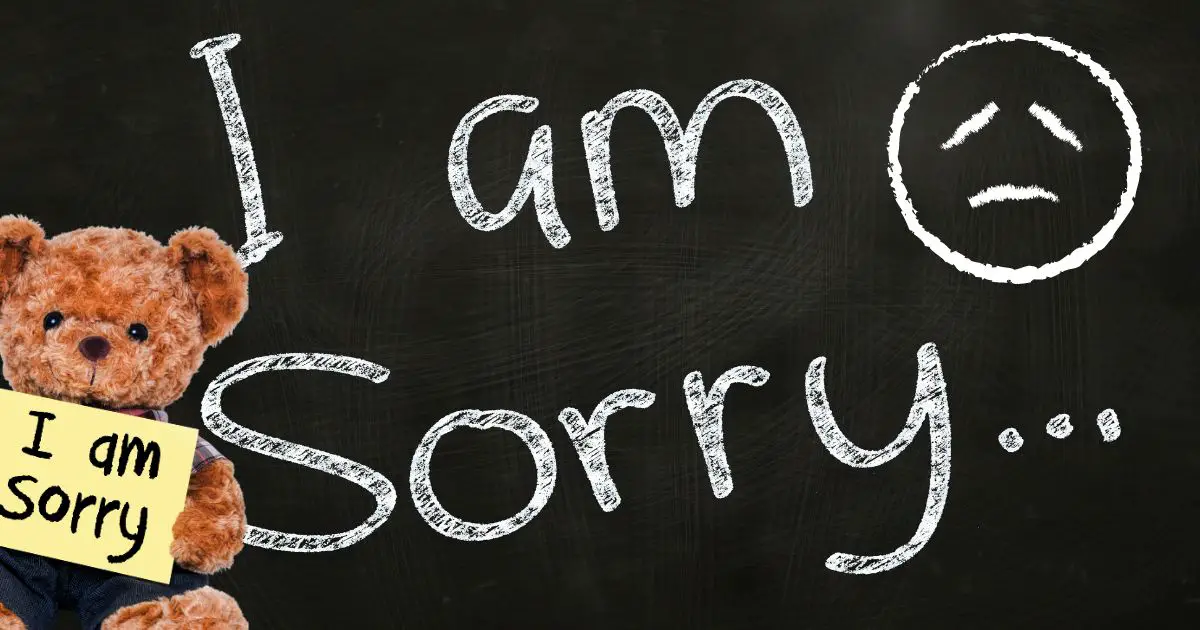There is no one-size-fits-all answer to the question of begging someone to stay in your life. However, what’s true is that begging someone to be in your life can evoke emotions and uncertainties. Let’s jump into this complex question, exploring its implications and offering insights into navigating such situations.
It is okay to beg someone to stay, especially if you are at fault and if it can save your relationship. However, it doesn’t always work, so it’s important to think carefully before using this approach.
1. Understanding the Urge to Beg Someone to Stay

The Emotions Behind Begging
Begging someone to stay often stems from deep-seated emotions such as fear of loss, insecurity, and attachment. It’s important to recognize these feelings to understand their impact on our actions.
In times of uncertainty or perceived threat in a relationship, the instinct to beg for someone’s can be strong. This instinct is rooted in a primal fear of abandonment and the desire for security and emotional connection. By recognizing the underlying emotions driving this urge, individuals can begin to address them constructively and seek healthier ways to fulfill their emotional needs.
Recognizing Healthy Attachments
While attachment is a natural aspect of human relationships, it’s crucial to distinguish between healthy attachment and dependency. Healthy attachments involve mutual respect, trust, and emotional support, whereas dependency can lead to unhealthy dynamics.
Understanding healthy attachment involves recognizing the balance between autonomy and intimacy within a relationship. It’s about fostering a sense of security and emotional connection while respecting each other’s boundaries. By nurturing healthy attachments, individuals can cultivate relationships based on mutual understanding and support, free from codependency or emotional reliance.
Facing the Fear of Abandonment
The fear of abandonment can drive individuals to beg for someone’s presence, fearing the void and uncertainty that come with separation. Exploring the root causes of this fear can help address underlying issues and help emotional growth.
Acknowledging and confronting the fear of abandonment is crucial in overcoming the urge to beg. This involves examining past experiences, such as childhood attachments or previous relationships, that may have contributed to these fears. By understanding the origins of these fears, individuals can work towards healing and building resilience, ultimately reducing the need for external validation and reassurance.
2. The Consequences of Begging

Undermining Self-Worth:
Begging someone to stay can inadvertently undermine one’s self-worth and dignity. It places the individual in a position of vulnerability, potentially reinforcing a cycle of emotional dependence. Constant begging can create a pattern where one’s value becomes tied to the approval and presence of others. This erodes self-esteem over time, as individuals believe they are only worthy of love and acceptance if they plead for it.
Straining Relationships:
Begging can strain relationships by creating a sense of pressure and obligation. It may push the other person away rather than build a genuine connection and bring them back to you. The strain caused by begging often leads to a breakdown in communication and trust. Resentment may build on both sides, as the person being begged may feel suffocated, while the one begging feels rejected and unfulfilled.
Diminishing Personal Agency:
Begging relinquishes personal agency and autonomy, placing the individual’s happiness and validation in the hands of another. This can lead to a loss of self-confidence and a diminished sense of self-worth. The act of begging can perpetuate a cycle of power imbalance within relationships. The person being begged gains a sense of control and superiority, while the one begging becomes increasingly dependent on external validation.
Fueling Resentment and Discontent:
Continuous begging can fuel resentment and discontent within the relationship. The person being begged may feel increasingly burdened by the pressure to stay, leading to frustration and unhappiness. This can create a toxic atmosphere of resentment and tension, ultimately damaging the relationship.
Escalating Conflict:
Begging often leads to escalated conflict within the relationship. As tensions rise, arguments become more frequent and intense, further straining the connection between the individuals involved. This escalation can make it difficult to resolve issues peacefully and may result in irreparable damage to the relationship.
Compromising Self-Respect:
Continuously begging someone to stay compromises one’s self-respect and dignity. It involves pleading for love and validation, sometimes at the expense of one’s values and boundaries. This compromise of self-respect can erode self-esteem and contribute to feelings of worthlessness and inadequacy.
Creating Dependency:
Persistent begging can foster dependency on the other person for emotional fulfillment and validation. The individual may become reliant on their presence to feel happy and secure, leading to an unhealthy dependence on external sources for validation and happiness. This dependency can inhibit personal worth and autonomy.
Perpetuating Unhealthy Patterns:
Engaging in begging perpetuates unhealthy patterns of behavior within the relationship. It reinforces a dynamic where one person seeks validation and approval from the other, often at the expense of their well-being. This cycle of behavior can become ingrained over time, making it challenging to break free from destructive patterns and establish healthier dynamics.
3. Embracing Acceptance and Letting Go

Cultivating Self-Love
Creating self-love and acceptance is essential in navigating the urge to beg, by prioritizing self-care and recognizing one’s inherent worth, individuals can cultivate emotional resilience and independence.
In addition to self-care practices, cultivating self-love involves challenging self-limiting beliefs and embracing self-compassion. This means treating oneself with the same kindness and understanding we can offer to a friend. It requires acknowledging imperfections as part of the human experience and embracing them with gentleness and acceptance.
Practicing Detachment
Practicing detachment involves releasing the need for control and accepting outcomes beyond our influence. It requires embracing uncertainty and trusting in the ebb and flow of life’s transitions.
In addition to embracing uncertainty, practicing detachment and a sense of surrender to the present moment. This means letting go of attachments to past regrets or future worries and focusing on finding peace and contentment in the here and now. It involves recognizing that true freedom lies in letting go of the illusion of control and embracing the beauty of life’s unpredictability.
Honoring Personal Boundaries
Setting and honoring personal boundaries is crucial in fostering healthy relationships. It involves communicating needs and expectations openly while respecting the autonomy of others.
Honoring personal boundaries requires self-awareness and assertiveness. This means recognizing when our boundaries are being crossed and advocating for our needs for confidence and respect. It involves trusting in our instincts and valuing our well-being enough to assert our boundaries without guilt or hesitation.
4. Seeking Support and Healing

Professional Counseling
Seeking professional counseling can provide valuable insights and tools for navigating complex emotions and relationship dynamics. Therapists offer a supportive space for self-exploration and growth.
Professional counselors employ various therapeutic techniques tailored to individual needs. These may include cognitive-behavioral therapy (CBT), dialectical behavior therapy (DBT), or psychodynamic therapy, aimed at addressing specific challenges and promoting emotional well-being.
Building a Supportive Network
Surrounding oneself with a supportive network of friends and loved ones can offer comfort and perspective during challenging times. Sharing experiences and seeking advice from people can help alleviate feelings of isolation.
Building a supportive network involves nurturing meaningful connections based on trust, empathy, and reciprocity. Investing time and effort in building these relationships creates a strong foundation for mutual support and understanding.
Engaging in Self-Reflection
Engaging with self-reflection allows individuals to gain clarity and perspective on their emotions and behaviors. Journaling, meditation, and mindfulness practices can facilitate introspection and emotional healing.
Self-reflection involves embracing vulnerability and acknowledging areas for growth. It allows individuals to examine patterns of thought and behavior, fostering self-awareness and personal development.
5. Redefining Relationships by Moving Forward

Reevaluating Relationship Dynamics
Redefining relationships involves reevaluating existing dynamics and determining whether they align with personal values and goals. It requires honest communication and mutual understanding to establish healthy expectations.
Understanding communication patterns within a relationship is essential in the reevaluation process. Paying attention to how conflicts are resolved, opinions are expressed, and feelings are validated can reveal underlying dynamics and areas for improvement.
Embracing Change and Growth
Embracing change is essential in moving forward from relationships where begging may have occurred. It involves letting go of attachments to past outcomes and embracing the potential for personal growth and fulfillment.
Change provides opportunities for personal development and self-discovery. Embracing new experiences, hobbies, and goals can enrich one’s life and a sense of fulfillment and purpose.
Establishing Mutual Respect
In redefining relationships, prioritizing mutual respect is paramount. This entails valuing each other’s autonomy, opinions, and boundaries, creating a partnership built on equality and understanding.
Establishing mutual respect involves fostering open and honest communication within the relationship. Encouraging dialogue, active listening, and validation of each other’s perspectives create a foundation of trust and understanding.
6. The Power of Self-Validation and Inner Strength

Finding Validation Within
Seeking validation from others can be fleeting and unreliable. Instead, finding validation within oneself involves recognizing one’s strengths, accomplishments, and intrinsic worth independent of external validation.
Finding validation within oneself is an ongoing journey of personal growth and self-discovery. It requires embracing the process of learning from successes and failures, and recognizing that every experience contributes to one’s sense of self-worth and resilience.
Cultivating Inner Strength
Cultivating inner strength involves resilience in the face of adversity and adversity. It requires tapping into one’s inner resources, such as courage, perseverance, and self-belief, to navigate life’s challenges for grace and confidence.
While inner strength is essential, seeking support from others can provide additional sources of strength and resilience. Connecting with trusted friends, family members, or support groups can offer perspective, encouragement, and validation during difficult times.
Practicing Self-Compassion
Practicing self-compassion is essential in building inner strength and resilience. It involves treating oneself with kindness and understanding, especially during struggle or self-doubt, and fostering a nurturing and supportive relationship with oneself.
Practicing self-compassion involves embracing one’s imperfections and vulnerabilities with acceptance and empathy. Recognizing setbacks and challenges allows for greater self-compassion and resilience in life’s ups and downs.
7. Possible Positive Outcome from Begging

Why Begging Can Be Good
Most people will probably tell you begging is wrong and pathetic, it won’t work, and advise you to let go. You might even hear such a thing from a proclaimed relationship expert. The real experts in the relationship are you and the other person. I have seen a relationship where a person begs and the other person ends up staying and they have a long happy marriage.
So most of the time begging might not be the right choice but no one can predict the outcome, and going against the grain can work. It is up to you to make the gamble if it would work in your favor or against you. If you have nothing left to lose why not give it a last-ditch effort?
Begging Can Make You a Humble Person
I admit to being guilty of begging but what I learn from doing this, which I thought I would never do, is humbling. There will be times when you are down and nothing is going right for you, and the only person that cares about you is about to leave you for good. This can be a humbling experience and make you realize that pride, strength, honor, and integrity aren’t worth anything if no one cares about you.
Begging can open up a new world perspective that no one can ever understand unless they go through such an experience. It will make you realize in life, nothing will ever matter more than your happiness. It doesn’t matter what people think of you, whether they think highly or lowly of you. You might feel that you have an image to keep. Trying to upkeep a fake image will make you depressed as you start to realize that this image of being too proud to beg is delusional.
Begging Can Be Acceptable
Begging can be acceptable and sometimes even praised by people especially when you are at fault and damage the relationship. If you know you’re at fault, you should ask the other person for forgiveness. If you are at fault and begging for forgiveness will fix things, you should set your pride aside and beg for forgiveness. No one should ever judge you for begging, and loving someone, as this is your choice.
Conclusion
Before you beg, think about the situation clearly to see who is at fault and reassess the situation. It might not be a good idea to beg someone especially if they mistreat you. If the relationship is damaged beyond repair, then sometimes it is best to let it go and move on, the choice is ultimately up to you to take your gamble with a clear mind.
While the urge to beg someone to stay in your life may be compelling, it’s essential to consider the broader implications and prioritize emotional well-being. You should understand the emotions behind begging, acknowledge its consequences, and embrace acceptance and self-love, individuals can navigate such situations with grace and resilience. Seeking support from counseling, building a supportive network, and engaging in self-reflection are valuable tools for personal growth and empowerment.





